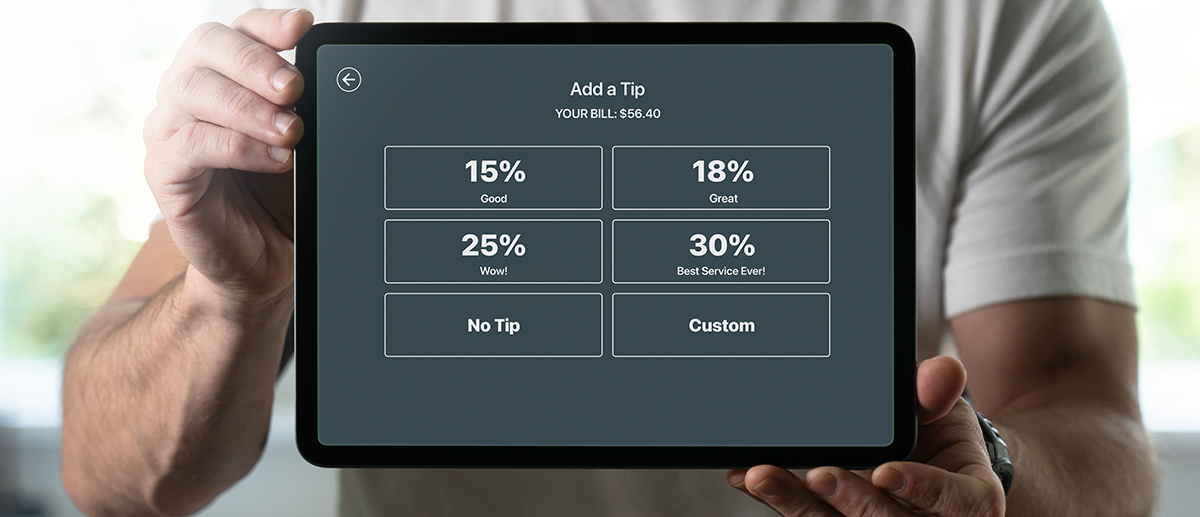Kerby Anderson
It’s time to have a meaningful conversation about tipping, for two reasons. First, there is a significant reaction to the expectation of tipping. Andy Kessler writes about “The Tyranny of Tipping.” Second, tipping may become a political issue. Donald Trump declared in Nevada: “When I get to office, we are going to not charges taxes on tips.”
Why do we tip? Historically, it goes back centuries. Andy Kessler talks about London taverns in the 17th century that suggested tipping “to insure promptitude.” Or to put it in modern terms, “to insure prompt service.” Frankly, many customers tip today because a percentage is already on the credit card screen. It is easier to add a tip than to zero it out and then feel guilty.
Most of us are glad to tip people who perform an important service. The frustration comes when we are asked to tip at a fast-food restaurant where we must pick up the food, take it to the table, refill our own drinks, and then throw away our garbage.
The social and economic consequences of tipping are significant. The IRS reported $38 billion in reported tips a few years ago. This would likely mean a loss of income in taxes. But what might this do to human behavior? Will employers pay less since they assume that workers are getting tax-free income? Will other professions start asking to be paid in tips?
Here’s another question. If we no longer tax tips, will they go up or down? According to the Fair Labor Standards Act, employers receive a tip credit between $2.13 per hour and the federal minimum wage. In a sense, your tips now pay part of a workers’ base salary. Will that increase or decrease?
America needs to get ready to have a serious conversation about tipping. 
 Listen Online
Listen Online Watch Online
Watch Online Find a Station in Your Area
Find a Station in Your Area









 Listen Now
Listen Now Watch Online
Watch Online
